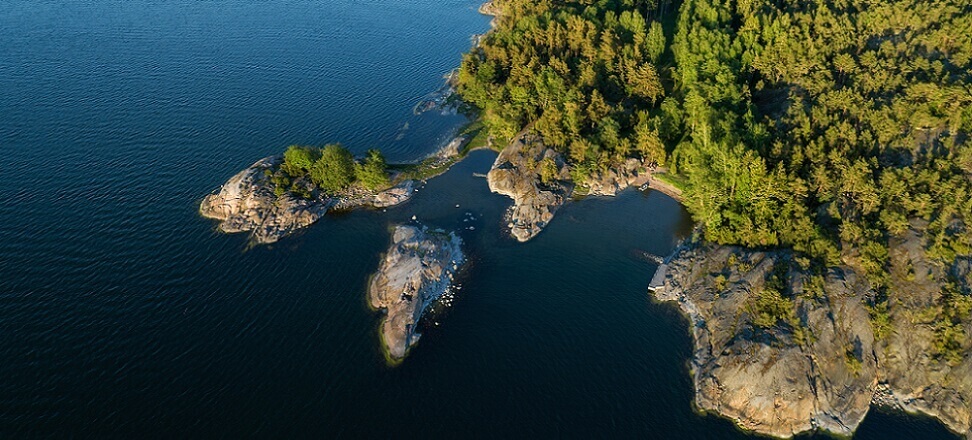Regardless of our sympathies and emotions after the parliamentary elections, regardless of who personally takes over water-related ministries, the time has come for a change. For a change that will not be made through high voter turnout, but one that responds to the effects of aquatic ecosystem processes. Droughts, floods, waterlogging or dying rivers are just a prelude to what is yet to come. These are not the predictions of the Queen of Sheba, but reality. Enough of hearing and reading about the dangers of climate change, the billions spent on drought compensation, and the loss of biodiversity, it’s high time to mobilize decision-makers to act and prioritize water.
Water bubbles
I recently heard that water specialists operate in their own hermetic environment. Without even trying to distance myself from it, I find that – indeed – there is something in it. Bubbles come to mind, where scientists, designers, environmentalists, entrepreneurs, politicians – each group separately – sit and discuss water a lot. Sometimes these bubbles collide with each other, but they are not connected long enough to develop lasting relationships and interactions. Agreement among circles that focus on different goals certainly takes time, but the one for discussions in one’s own circle has already passed. The multitude of planning documents related to water management in our country can make one’s head spin. I have already made an attempt in the pages of “Water Matters” to explain their relationship. In each of them you will find a description of activities important for improving the quantity and quality of water in Poland, but which are the most important? Which direction do we go? What about mutually exclusive activities? How can an entrepreneur find out if his investment plans coincide with our country’s water priorities? The answers to these questions are not obvious, on the contrary: where you put your ear, a different answer can be heard.

Priorities for water
I am often asked what is most important for water at the moment. My answer is yes:
- Education, because everything starts with it. Don’t expect to understand the industry’s ideas without explaining and communicating them in an accessible, logical way. Without knowing how to counter water shortages or water pollution, there will be no results. Unfortunately, this aspect affects everyone from officials to users. It is accepted that water in Poland is handled by specialists. This is nonsense, let’s move away from this kind of thinking – I deal with water professionally, but you also decide every day how much you use and for what purpose. A fantastic example is one of our readers. We could not remain indifferent to such an initiative and share it with you in our Business and Economics section: Rainwater capture and management – from idea to implementation.
- Retention, preferably the natural kind. I have already written about the faces of retention in Water Matters. This aspect requires a specific agreement between different stakeholder groups, which should be developed based on sound scientific and practical knowledge, as well as cost-benefit analysis.
- sustainable use of water. Maintaining synergy in water management is of particular importance. Each user should be aware of the implications of water use – both in the formal-legal and environmental spheres; how our actions affect water quantity and quality; and whether these two considerations will allow us to develop our investment plans. It is important for administrative bodies to watch over the rationalization of the provisions of water permits. Responsible business should also play an integral role in shaping the sustainable use of water. In this issue, we write about news on the European Sustainable Reporting Standards (ESRS).
- Water price rationalization. A very difficult topic, both for water companies and users. Some want it to reflect the actual costs incurred by the plant, others want it to be as cheap as possible. We have already written about where the price for water comes from in our pages. Let’s remember that in this particular case – the proverbial stick has two ends. If there is no money for modernization of water supply networks, wastewater treatment plants or sustainable investments – we will all feel it very painfully in the form of poorer water quality and reduced water availability. If the price for water is too exorbitant, socioeconomic development will slow down. Water prices should reflect the availability of resources according to their quality and quantity and be based on the “polluter pays” principle. In contrast, the water pricing mechanism currently in use, despite the original assumptions, does not take into account the results of the economic analysis of water use. In the above context, I also recommend the latest WWF report, The High Cost of Cheap Water.
I won’t convince you of my own views on water priorities, but I would like to see them finally established. I don’t expect a perfect product, but one developed based on the voices of various communities, taking into account the needs of aquatic ecosystems and users. If we don’t give proper priority to water, emergencies will follow one after another. In my experience, what is needed is a strategy that is understood by all. I must emphasize – this should be a short document, as other plans and programs in this area are several hundred pages each. Who reads them? You know the answer. The pragmatic approach seems to be the only right one.
Ps. Photo for the interest of the uninterested in the topic….

 Polski
Polski






